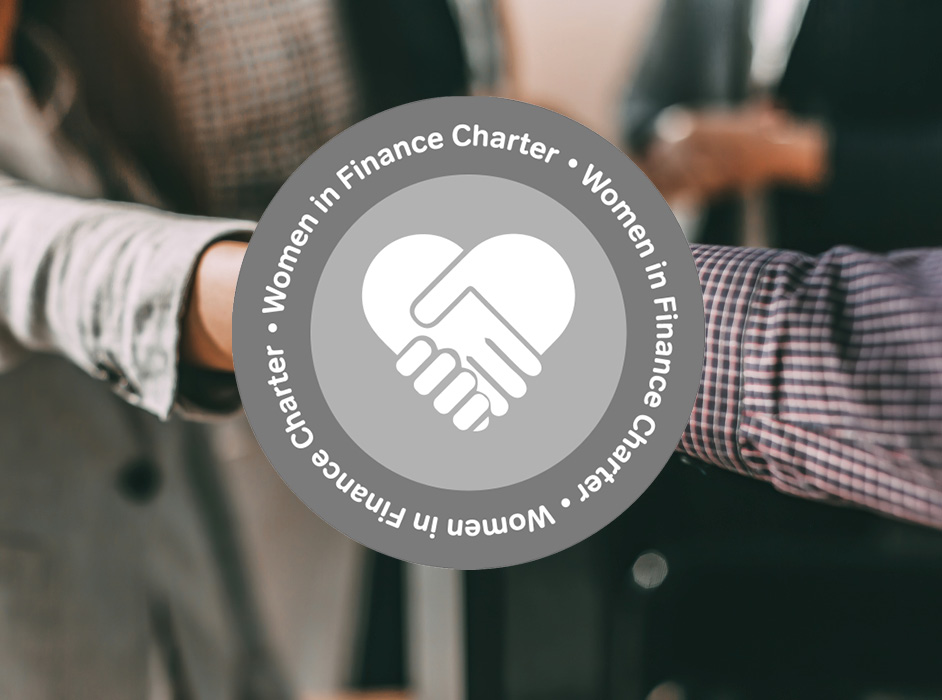
How values-based banking can help us build a better society
Charity Bank’s Mark Howland, Director of Marketing & Communications discusses how values-based banking can help us build a better society.
Values-based banks don’t just avoid doing harm, they actively use finance to do good. It can’t solve everything, but banking can fulfil a core social purpose.
In the current climate, people are becoming increasingly aware of the interdependence of the real economy, social cohesion and our natural eco-system — something that Charity Bank and other values-based banks have long understood. As we recover and rebuild from the impact of COVID-19, values-based banks have an opportunity to demonstrate an alternative approach to banking, while contributing to the solutions that the global community is yearning for, and becoming a reference point for others along the way.
Values-based banks can be defined as those with a mission to use finance to deliver sustainable economic, social and environmental development, with a focus on helping individuals fulfil their potential and building stronger communities. There is a growing base of evidence that shows values-based banks are outperforming large banks, not only in terms of social and environmental impact, but also in terms of financial strength and performance.
The Global Alliance for Banking on Values (GABV) is a network of banking leaders from around the world committed to collaboration and advancing positive change in the banking sector. It is comprised of 63 financial institutions and 16 strategic partners, serving more than 70 million customers, and together holding over US$210 billion of assets under management and supported by more than 77,000 co-workers. Below, we explore some of the principles behind values-based banking, and illustrate with examples of GABV members that are making a positive and sustainable difference to the world around them.
Humans at the centre
For values-based banks, business decisions start by identifying a human need to be met, and then establishing how to meet that need in a way that is sustainable from an environmental, social and economic perspective, including sustainable profitability for the bank. We are deeply connected to and genuinely care about the people we work with, the communities we serve and the products and services we provide. We believe this is essential if we are to rebuild and strengthen the social fabric of our society.
Bank Australia, for example, is a customer-owned bank that seeks to make banking work for both the economic benefit of its customers-shareholders and for the betterment of their local communities. Customer ownership and accountability impacts on every aspect of the bank’s activities. This includes reinvesting profits with the aim to deliver better quality services, competitive interest rates and a range of projects intended to create stronger and more resilient communities. Their approach aims to deliver better results for everyone, both socially and financially.
Long-term perspective
Values-based banks adopt a long-term viewpoint that strengthens both the bank’s and its clients’ resilience in the face of external disruptions. As COVID-19 has shown, charities and social enterprises need to have sustainable and diverse income streams as well as sufficient reserves in place to see them through lean periods. To deliver solutions to deep-rooted social and environmental issues, we need strong and sustainable organisations delivering consistent results over the long-term.
“Values-based banks maintain a high degree of transparency and inclusiveness in governance and reporting.”
Mark Howland, Director of Marketing & Communications, Charity Bank
Banca Etica in Italy was founded in 1999 to connect enterprising social organisations with savers that want their money to be used in a more transparent and responsible way. In common with other values-based banks, Banca Etica is aligned to the values and missions of the many organisations that it supports. Due to its long-term perspective and sustainable approach, Banca Etica was one of many value-based banks (including Charity Bank) that actually grew both its deposits and lending activity during the 2008 banking crisis, whilst many mainstream providers withdrew from the market.
More than an ethical option
Values-based banks don’t just avoid doing harm, they actively use finance to do good. We believe ‘ethical’ is simply what everyone should be doing. After all, if it’s not ‘ethical’, it’s ‘unethical’, right? If we are to address the multitude of social problems facing society and the large financial challenges facing the social sector then it’s not enough to simply be ‘ethical’; we need to be ‘intentional’ in our desire to create positive social change and direct our savings and investments to where they are most needed. Values-based banks go much further – offering savers and investors the chance to take control of their money’s impact and put their money where their values are. Changing the way that people think about their money and how it is used is integral to the value-based banking model and mission.
Alternative Bank Switzerland is a pioneer in social and ecological banking that aims “to further the common good and to protect people and nature through its business activities so that the world remains worth living in”. Its products reflect this and include, for example, Property Rating to assess the sustainability of buildings, while its investment advice is aimed at people who want their money to be purposefully directed towards projects that have a positive impact.
Unlocking greater sums
The leverage that the banking model offers enables values-based banks to direct much larger sums towards social good than would otherwise be possible. For Charity Bank this means that for every £1m of capital (equity and subordinated debt) invested in the bank, we can raise around £7m of savings and thereby make around £8m of social loans. And, as these loans are repaid, the proceeds are re-lent, thereby perpetuating the social impact that they enable.
According to research and analysis published earlier this year by the Charity Finance Group and the Chartered Institute of Fundraising, the coronavirus pandemic will result in a £12.4bn loss of income for UK charities over the next year. Charitable trusts and foundations have quite rightly been praised for their prompt response in delivering emergency funding to the social sector. However, grant funding alone will not be sufficient to fill the enormous income gap that exists. We believe that complimentary social investment can extend the reach and impact of grant funding, strengthening the social sector and putting larger sums of long-term renewable funding to work for the common good.
Transparency and measuring what matters
Values-based banks maintain a high degree of transparency and inclusiveness in governance and reporting. In this context, inclusiveness means an active relationship with a bank’s extended stakeholder community: not only shareholders but also borrowers and savers, employees and local communities. It also means a growing focus on measuring the social impact of our investments and their effectiveness. We are in the ‘impact’ business and as such it is vital that we can show the difference our loans and related support are making.
Conclusion
Values-based banking is a global movement represented by a diverse range of socially-oriented banks positioned to drive positive economic, social and environmental impact through their activities and by influencing how the wider finance industry can serve human needs and the real economy. While these may seem to be lofty goals, values-based banking starts with the individual, is inclusive and is rooted within the communities it serves. It does not promise short-term fixes or claim to be the sole answer but is focused on banking fulfilling a core social purpose.
Mark Howland, Director of Marketing and Communications at Charity Bank, discusses what it means to be a member of GABV and explains the founding principles of values-based banking.
Mark Howland – Director of Marketing and Communications, Charity Bank
Mark’s role is focused on raising awareness of how loans, savings and investments can be a powerful force for good. He has created and implemented marketing and communications strategies for Charity Bank for the past 17 years, as the bank has grown from a £6m pilot fund to a £250m impact-driven bank. His experience includes communications consultancy to the National Council for Persons with Disabilities in Kenya and volunteering in different capacities for social sector organisations.
This article was published in Philanthropy Impact Magazine (Issue 24), 2020.
About Charity Bank
Charity Bank is the loans and savings bank owned by and committed to supporting the social sector. Since 2002, we have used our savers’ money to make more than 1380 loans totalling over £580m to housing, education, social care, community and other social purpose organisations.
Nothing in this article constitutes an invitation to engage in investment activity nor is it advice or a recommendation and professional advice should be taken before any course of action is pursued.


